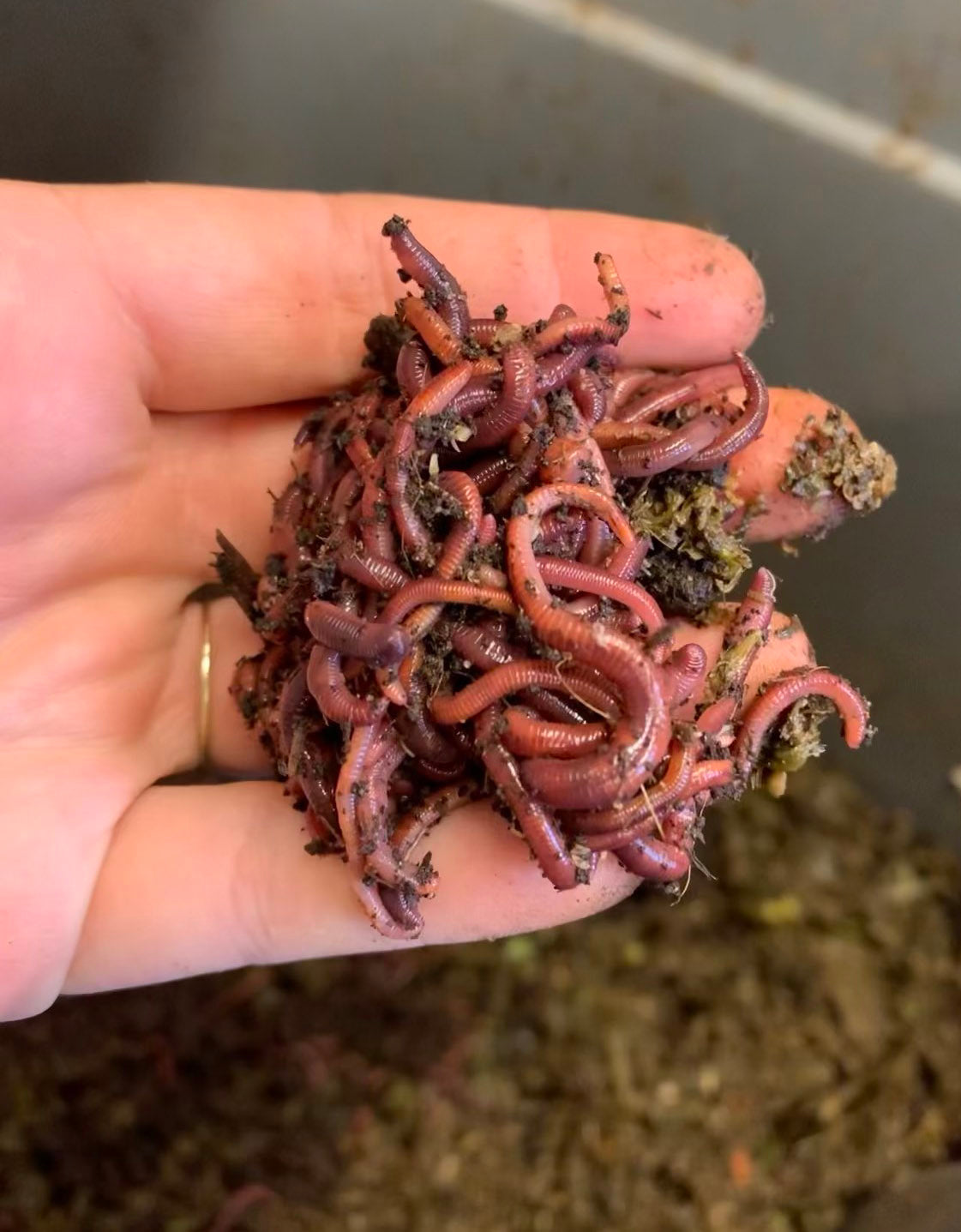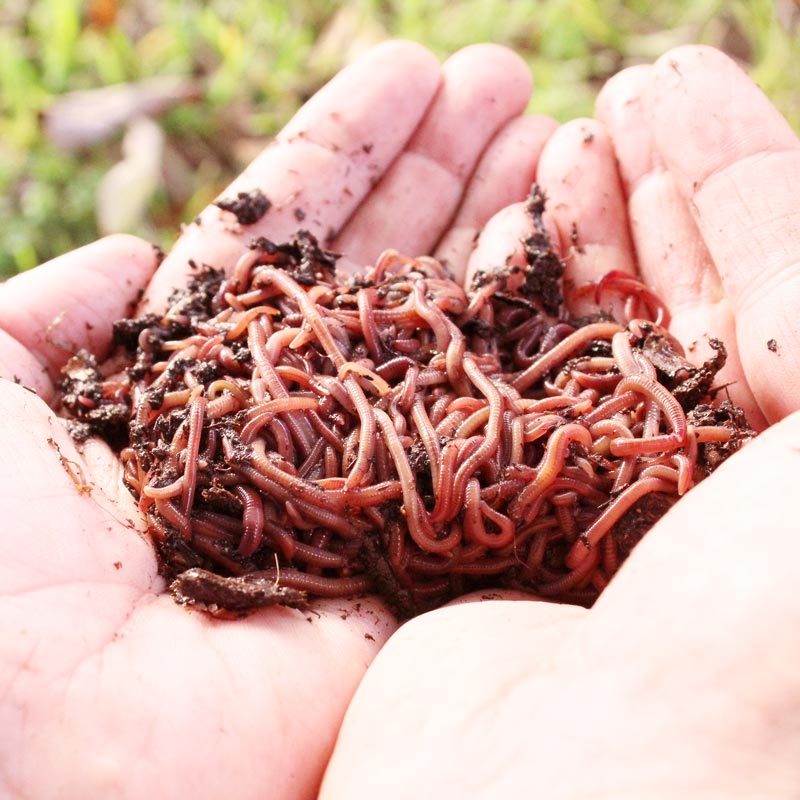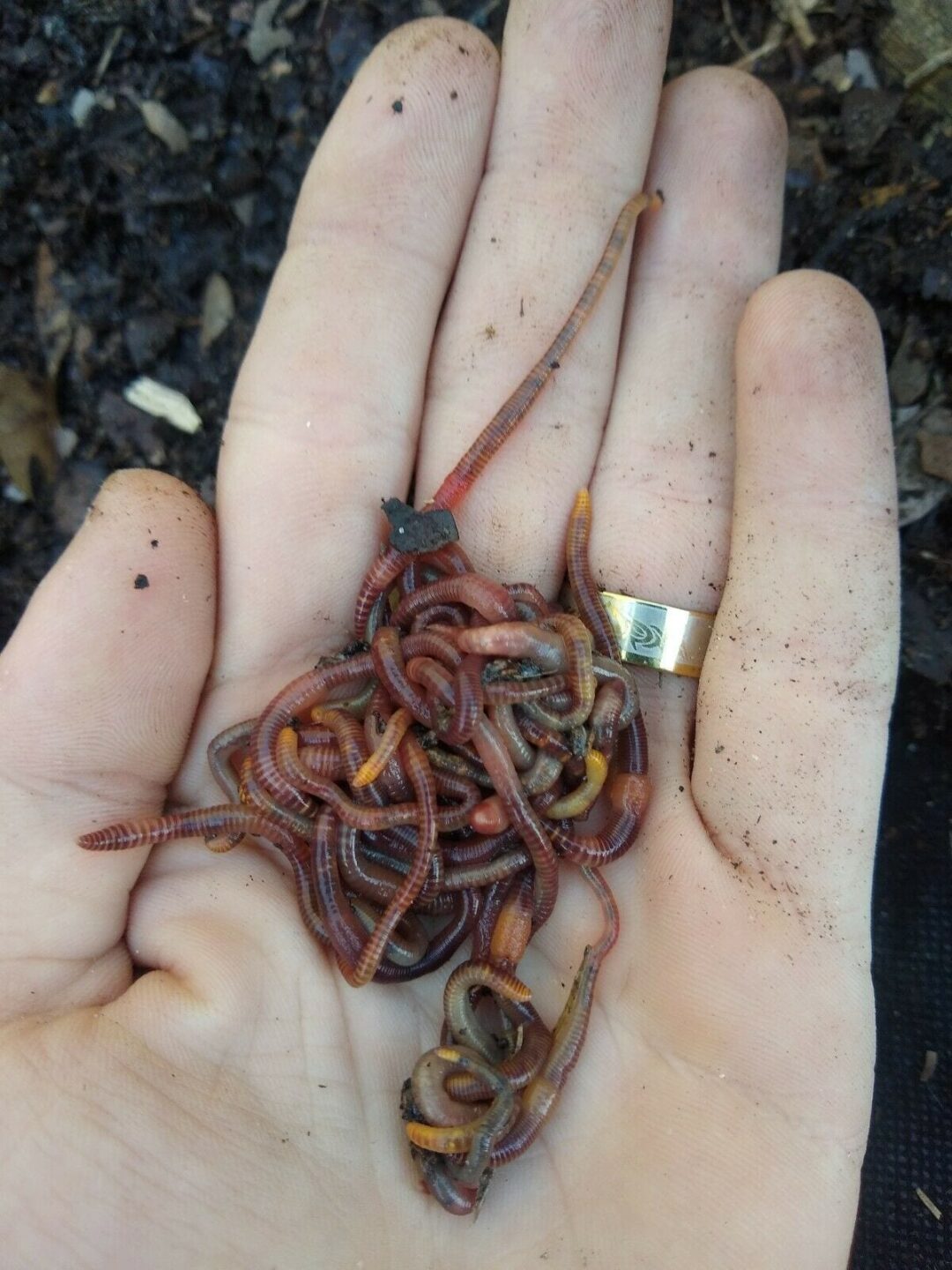Red Wiggler Express: A Trusted Name for Worms and Angling Needs
Red Wiggler Express: A Trusted Name for Worms and Angling Needs
Blog Article
Unlock the Secrets of Red Wigglers: Your Overview to Composting Success
The combination of red wigglers into composting practices presents a significant opportunity for boosting soil health and promoting sustainability. Understanding their needs and actions is critical for maximizing their capacity, from establishing up a suitable worm bin to feeding them the right products.

What Are Red Wigglers?
(Red Wiggler Express)Red wigglers, clinically understood as Eisenia fetida, are a types of earthworm primarily utilized in composting due to their impressive capability to disintegrate natural matter successfully. These worms are identified by their reddish-brown pigmentation and a fractional body, typically gauging in between 3 to 4 inches in length. Unlike other earthworm species, red wigglers flourish in abundant, natural environments, making them ideal for vermicomposting systems.
Belonging To North America, they are usually discovered in decomposing leaves and compost heap, where they play a critical function in nutrient recycling. Their adjustment to living in a wet, aerobic atmosphere allows them to consume huge quantities of organic waste, damaging it down right into nutrient-rich castings that improve dirt health.
Red wigglers recreate quickly, with a solitary worm qualified of generating several cocoons each week, each containing several hatchlings. Comprehending the biology and habits of red wigglers is crucial for optimizing their potential in composting applications.
Benefits of Using Red Wigglers
Taking advantage of the power of red wigglers in composting uses many advantages that boost dirt wellness and advertise lasting waste monitoring. These impressive microorganisms successfully damage down raw material, changing kitchen area scraps and lawn waste right into nutrient-rich vermicompost. This completed product is extremely useful for plant development, as it enhances soil structure, enhances wetness retention, and enhances nutrient availability.

(Red Wiggler Express)In addition, the existence of red wigglers in your composting system can speed up the composting process, generating top notch compost in a fraction of the moment compared to traditional approaches. The castings produced by these worms are additionally bursting with advantageous bacteria that even more enhance the soil community.
Establishing Your Worm Bin
Creating a reliable worm bin is a straightforward procedure that can dramatically improve your composting initiatives. Worm containers can be made from plastic storage space containers, wooden boxes, or commercially available worm bins.
Following, prepare the bedding material, which offers as the worms' environment. A mix of shredded paper, cardboard, and coconut coir works well, offering a comfortable atmosphere for the worms.

Feeding Your Red Wigglers
To guarantee the health and wellness and productivity of your red wigglers, it is important to offer them with a balanced diet regimen that satisfies their dietary requirements. Red wigglers flourish on a diverse array of organic products, which not just supply necessary nutrients yet likewise promote reliable composting.
Begin by incorporating cooking area scraps such as vegetable peels, fruit cores, and coffee premises. Prevent citrus fruits, onions, and garlic, as these can be harmful to worm health. In addition, present shredded paper, cardboard, and dry leaves to develop a well-aerated atmosphere.
Feeding regularity must be kept track of; generally, worms can eat half their body weight in food weekly. It is important to prevent overfeeding, as excess food can lead to undesirable odors and bring in bugs. A good technique is to add food in tiny amounts, enabling worms to refine it before presenting more.
Preserving dampness levels is likewise essential; the bedding must perspire but not soggy. Be sure to on a regular basis examine the temperature and pH degrees of the container to ensure an ideal setting for your red wigglers, ultimately enhancing their composting effectiveness.
Harvesting and Making Use Of Garden Compost
A successful composting process with red wigglers culminates in the rich, dark compost referred to as vermicompost, which can substantially improve dirt health and wellness and plant development. Gathering this nutrient-dense product commonly takes place every 3 to 6 months, relying on the dimension of your system and the quantity of raw material being processed.
To gather, gently separate the compost from the worms and any undecomposed products. One reliable technique includes moving the materials of the container to one side and including fresh bed linen and food to the empty space, urging the worms to move. After a few days, the garden compost can be gathered from the opposite side.
It is necessary to utilize vermicompost appropriately to maximize its advantages. It can be utilized as a top clothing for garden beds, mixed right into potting soil, or made into a nutrient-rich fluid plant food called "worm tea." This application approach assists to deliver crucial nutrients directly to plant origins, promoting healthier development. By integrating vermicompost right into your gardening regimen, you not just recycle natural waste but additionally produce a flourishing ecological community that supports sustainable horticulture practices.
Verdict
In summary, red wigglers offer as extraordinary allies in composting initiatives, transforming organic waste right into nutrient-rich vermicompost (Red Wiggler Express). Their unique biological click here to read features and effective waste handling capabilities add significantly to sustainable horticulture practices. By comprehending the ideal conditions for their environment, feeding needs, and compost harvesting methods, garden enthusiasts can enhance soil wellness and promote plant vitality. Accepting vermicomposting not just reduces garbage dump waste yet likewise fosters a more ecologically liable method to horticulture and source administration.
Report this page